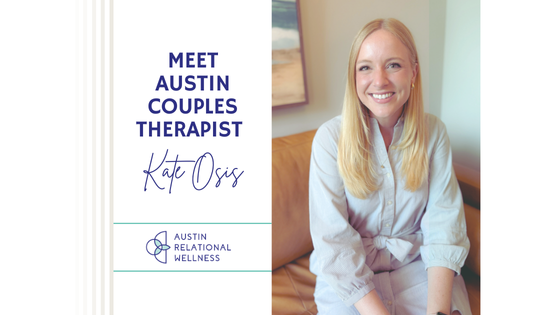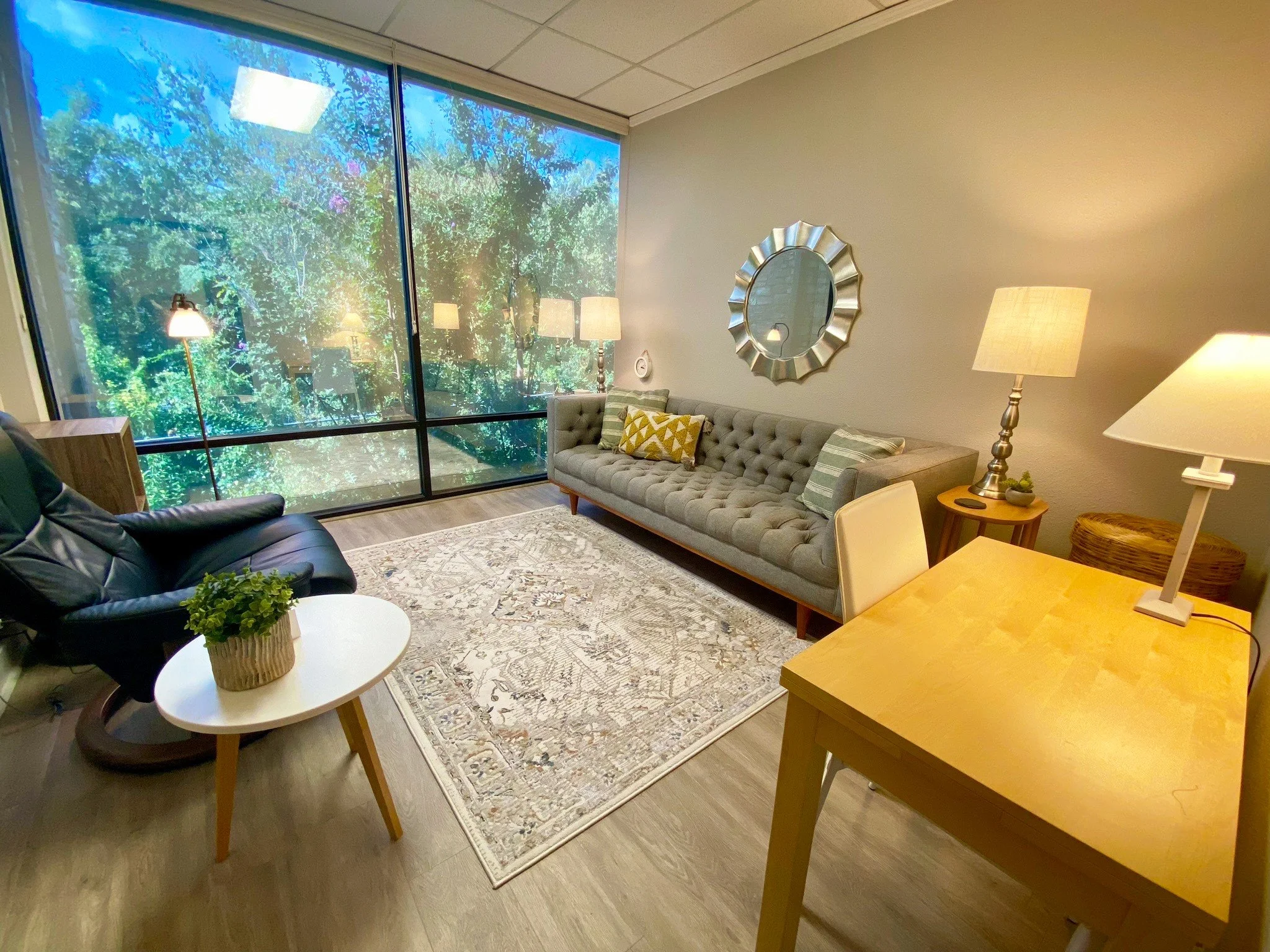Meet Kate: Austin Couples Therapist
Hi, I’m Kate! I’m a therapist who works with couples and individuals, and is passionate about the central role that relationships play in our lives. I believe we are designed for connection and belonging, and when we experience those, whether it's in a relationship, in our families, in friendships, or simply with ourselves, we can thrive.
Credentials and Therapy Specializations
Since becoming a therapist, I have worked with clients from ages 4 to 63, and have experience with couples, adults, teens, and kiddos. I have training in Emotionally-Focused Therapy, Internal Family Systems, Somatic Experiencing, trauma-informed care, eating disorders, religious and spiritual counseling, and more. Most of my work as a couples therapist has centered around recovering from betrayal or feeling stuck in patterns of miscommunication and conflict. In individual therapy, I have experience working with complex trauma, anxiety, people-pleasing and perfectionism, low self-esteem, body image, and religious and spiritual challenges.
A fun fact is that I also spent a year training and working in play therapy and parent coaching, and although I no longer work in the playroom, I’m so grateful for the ways this deepened my work with all clients.
Journey to Becoming a Couples Therapist
Therapy is my second career. Prior to pursuing therapy, I was a consultant for the federal government in Washington, DC, advising government agencies on workforce strategy. There were things I loved about the job, but I knew it wasn’t my long-term career fit. I began to notice that the parts I loved most were people-oriented, such as building relationships with clients or mentoring junior employees. Outside of work, I realized I was spending my time mentoring, reading books by therapists, and listening to podcasts by therapists. I started to connect the dots and become interested in what this career could look like.
When the COVID-19 pandemic hit, and everyone’s lives were turned upside down, I decided it was time to make a change. After talking with clinicians in the field, and beginning my own therapy, I knew I wanted to work directly with people in this field, providing support and tools to help them pursue their goals and become healthier, more whole versions of themselves.
Education and Training Background
For my counseling education, I went to the George Washington University in Washington, DC, and received my Masters in Clinical Mental Health Counseling.
Prior to this, I received both my Masters in Public Policy and Leadership and my Bachelors in Spanish from the University of Virginia in Charlottesville, Virginia.
Kate's Focus: Couples and Young Women
First, of course, are couples. I love working with couples who have gotten stuck in patterns of disconnection or feel distant from their partners, whether due to life demands, betrayal, or miscommunication. I believe healthy relationships are directly tied to our quality of life, and my hope is that all of my clients can feel seen, known, and cherished in their relationships.
Second, I love working with young women, and even older teens, who are navigating becoming who they want to be in all areas of their lives - friendships, career, relationships, family, etc. This is such a crucial developmental period, and I love to help clients feel empowered to build lives full of self-compassion, agency, and joy.
Getting to Know Kate: An Austin Native
I’m a native Austinite who recently moved back to Austin, TX after living in the Washington, DC area for about 13 years. My husband is from Philadelphia, so I did marry into the Philly sports fandom - we love to watch the Eagles every weekend. My favorite forms of self-care are long walks listening to an audiobook and an early bedtime. I also could be classified as a “foodie,” and love trying new restaurants or recipes at home.

























































